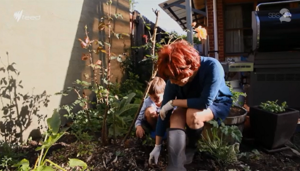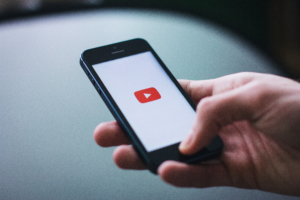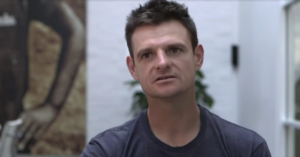Video stories
“Owning our story can be hard but not nearly as difficult as spending our lives running from it. Embracing our vulnerabilities is risky but not nearly as dangerous as giving up on love and belonging and joy—the experiences that make us the most vulnerable. Only when we are brave enough to explore the darkness will we discover the infinite power of our light.” ― Brené Brown
“If there was more access and support in the community on outpatient day basis centers like places people could go when they’re in a crisis, less people would end in acute crisis needing to go into hospital.”
Sophie, from the UK, detailed her struggles for a BBC animated film as part of Mental Health Awareness week. To watch the full video and read the full article go to Sophie’s story: NHS apologises over mental health failings.
“Be brave enough to be yourself.”
Stephanie Vicente began writing at the age of five when her mother gave her her first diary. She could only write a handful of words and would spell them phonetically. She wrote personal and honest entries until the age of thirteen, when she began her struggle with mental illness. At that point, Stephanie began to write dark poetry, existential essays, and creative short fiction. After graduating from university, she worked in the film and television industry, where she was met with long hours and no time to write, all the while suffering from BPD. A few years into her career in film and TV, Stephanie realised she hadn’t been writing as often and was truly struggling with her own identity. She left film and TV to maintain her sanity and reunite herself with the written word once again. A hobby that she considered therapeutic for years would become her career goal and passion. Now, as Editor-in-Chief and Co-Founder of Herd Magazine, Stephanie aims to use this passion to better the creative community in Ottawa and bring all corners of arts and culture together. She speaks about being active and responsible for her own recovery. Her first speech is 17 minutes long followed by a Q&A discussion with the audience. Her second speech is a TEDx Talk.
“BPD is … you have to remove the toxic weeds from your brain in order to allow flowers to grow.”
Sonia Neale is one of over 200,000 Australians who are affected by BPD. She was diagnosed in 2005 but it was not until a few years later that she received the diagnosis. She found knowing her diagnosis empowering as it led her to educate herself and learn to cope and eventually embrace it. The inaugural Hocking Fellowship for 2014 was awarded to Neale to do BPD research internationally. She is also a motivational speaker sharing message of hope for people suffering from BPD and is living proof that recovery from BPD is possible.
Ida’s Diary is a film about hope, about finding your own identity and daring to live.
Ida’s Diary from Indie Film on Vimeo.
Ida is a young Norwegian woman, struggling with a turbulent emotional life caused by emotionally unstable personality disorder (borderline). For the last eight years, Ida has kept a video diary in order to ease her mind and structure her thoughts. In her diary we get a unique insight into a world of fear and anxiety, but also precious moments of everyday victories and self-discovery. Most importantly we get to witness her powerful struggle towards self-acceptance and a genuine appreciation of life. NB! The film has english subtitles. More information on www.idasdiaryfilm.com.
“I love myself.”
Marsha Linehan is a therapist, researcher and the creator of Dialectical Behavioural Therapy for BPD. She reveals her past struggles with BPD and recalls the religions experience that transformed her as a young woman. To read the full article read The New York Times – Expert on mental illness reveals her own fight.

“I feel like I’m probably at the highest level of self-acceptance I’ve been at my life. True self acceptance – without fame, without money, just me. And for that I’m really grateful. That is growth for me.”
Tania Lacy is a writer, comedian, ‘recovering celebrity’, mother and wife. She opens up about being diagnosed with BPD at 44. She describes the challenges she has faced of being previously famous, self-medicating, now managing the illness with a supportive family. To read the full article and watch the video click here.
“I’m still me – 100% me, just trying to do the right thing.”
Former world champion Australian skateboarder Tas Pappas speaks about being diagnosed with BPD. After several run-ins with the law on drug-related offenses, Pappas recounts that after much self-reflection, he is now able to take responsibility for his past actions and continue to work on himself. To view video click here.
“Mental illness – it will test me, strengthen me and teach me… but it will never destroy me.”
Chelsea Smith shares her essay, “The Long Drive,” about suicide and BPD. This story was shared in the “This is my Brave” show in Iowa, Des Moines. Performance – bringing mental illness and mental health issues into the spotlight through creative expression live on stage. {This is my Brave}. Chelsea’s first suicide attempt was at 19 with many inpatient hospital admissions. She did not get a BPD diagnosis until 6 years later and has now come into terms with her condition.
"You are a warrior and you have survived..that’s the most beautiful thing a person can say about themselves." "I am so many things beyond the label." "For all the ugly and all the hardships, there is so much beauty and there is so much love... and there are people that will make their lives out to helping you." "I am enough and that is revolutionary."
The Sashbear Foundation, an all-volunteer charitable organization, has been working hard to raise awareness about mental illness, emotion dysregulation and BPD by removing the stigma surrounding mental health and promoting resilience through effective life coping skills and a more compassionate and validating environment. Together as one, we can all make a difference. This “Having a life worth living” playlist is a collection of 12 individuals candidly sharing their lived experiences of BPD and beyond.
“By telling my story, someone is going to hear it and be freed… have hope… can potentially save your life.”
Brandon Marshall is a US football player who called a news conference to announce his BPD diagnosis in 2011. He is committed to using football as a platform to raising awareness about mental illness and educating himself and others about BPD so that others who find themselves in his situation can get the help they need. He also hopes to bridge the gap between patients, clinicians, and family members. He has joined forces with his wife and an extensive team to create Project 375, a campaign to eradicate stigma surrounding mental health and improving care for those in need.
“I took out my sketchbook and showed him and said I’m feeling this!”
Katy has BPD. However describing the condition to others can be difficult. So, here she uses Google’s Tilt Brush tool in virtual reality to draw and explain what it’s really like to live with the disorder day in, day out and also give advice to others who think they may have the mental health condition. This is the first episode of a new three part BBC series, Step Inside My Head.
“Experiences shapes brains for better and worse. I wasn’t weak and I wasn’t sick. I was just hurt and I needed some help.”
Dr Haley Peckham has chosen not to hide the multiple self-inflicted scars along her arms as a testament to her struggle with BPD. Her disorder manifested itself through self-harm and a fear of abandonment so she sought professional help from a psychotherapist. This new relationship allowed her to adapt to healthy coping behaviours and led her to attain a PhD in molecular neuroscience. Click here to read more of her story.
“It’s not that I don’t have a personality – it’s that how on earth do I explain what my personality is when it changes all the time?”
Claudia is a Youtuber who discusses BPD, depression, anxiety, LGBT issues, politics, feminism and made an appearance on a UK documentary ‘Me and My Mental Health’ to talk about living with BPD. To view her story in more detail, click here.
“With Reach Out I learnt a lot of self-care.”
Jordan now volunteers with Reach Out Australia where she learnt how to cope with BPD symptoms. She also recounts of accessing psychotherapy to manage BPD behaviours and pharmacology to manage anxiety and depression.
“I can look at my emotions in the eye now. It felt so strange to be kind to myself.”
This short film is a compilation of BPD experiences made by Dr Georgina Fozard and Dr Florence Dalton who both have first-hand experience working with personality disorders. This film is from Wolf Pack Psychiatry and funded by the Royal College of Psychiatrists (UK) and reveals possible causes, symptoms and treatment options for emotionally unstable personality disorder (also known as BPD).
“Taking the steps to overcome it is not a sign of weakness, it’s a sign of strength.”
Nadia explains how her family and friends didn’t understand what she was experiencing with BPD and the importance of getting appropriate professional support as well as help and understanding from family.
“You see a recovery happening and you treasure those things because you know it’s happening.”
Project Air Strategy talks to a woman with lived experience, mental health recovery advocate, and peer educator, and her mum who is a teacher and carer advocate. Hear their story of their journey to recovery.
“Be patient with yourself and be forgiving with yourself.”
Stephanie shares her daily recovery journey from eating disorder and BPD. She practices skills learned from Dialectical Behavioural Therapy in her daily routine including meditation and running. She acknowledges that she will never be “100% healed” but can become good with managing the BPD symptoms. This story was produced by Project Air Strategy.
“This struggle – this fight, is the reason why I am alive”
Amanda shares her story of battling BPD by focusing on boxing and starting ReThinkBPD – an online platform for open discussion and awareness-raising about BPD.




